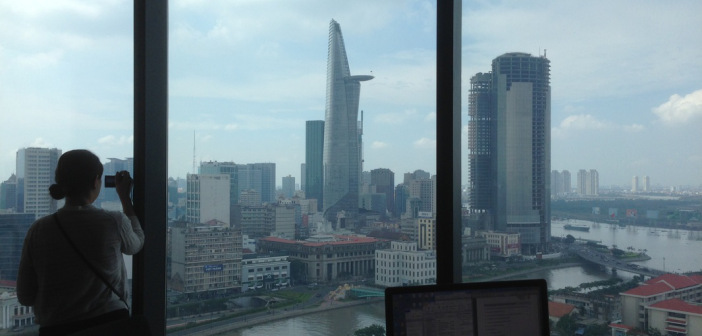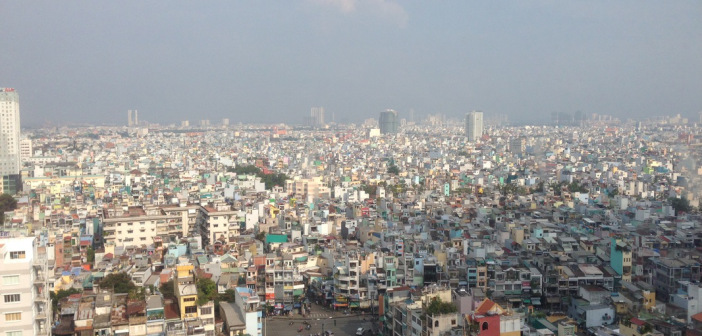Vietnam’s Economic Development
I’m intrigued reading the reports on the 40th anniversary of Saigon’s fall, such as this great piece from Reuters. The Vietnam I know is so markedly different today, the obvious generational gap notwithstanding. 2014 marked my 3rd trip to Ho Chi Minh City to meet with companies about their business practices, with the first two occurring in 2002 and 2003 (all with my Boston College International Management Experience Asia program). Vietnam has come an incredibly long way in 40 years, with considerable progress from a business perspective in the past decade alone. There’s a distinct, and almost infectious, entrepreneurial spirit which permeates all of my (business) interactions with Vietnamese executives.
I know the 800-pound omnipresent gorilla currently in the room is the “China” question, in terms of Vietnam being able to keep pace, with respect to competitiveness, market share, infrastructure, etc. However, in the past few years, the number of relocating companies (often from China) has markedly increased, with this article providing a short list. To China’s credit, it has continued increasing wages to provide as high a quality of life for its citizens as possible. Here’s a good report on its progress from CBS News. But the knife cuts in both directions, since while higher wages benefit one country, they often have opposite effects in terms of profitability for importing distributors or the end consumer. Vietnam is hoping to capitalize on these profit margin woes, entering the fray with distinctly lower wages and a new-age, “can do” attitude. Infrastructure will be problematic, but let’s not forget not only how far afield China was 20+ years ago, and also how much its government invested monies to bring it to where it is today.
To be fair, China’s an expansive, resource-rich country with a desire to always move forward courtesy of central planning. Despite its size, it’s also unusually immune from a high degree of regional competition. For the most part, everyone tends to support the federal government’s mission to improve the People’s Republic, and the state / local cadres follow suit. Even with its small size, Vietnam has some catching up to do, since there are still some turf wars between the North and the South. (Check out these message board responses highlighting the differences).
Much as I was back in 2002, I’m still very bullish on Vietnam’s growth potential. It clearly has fewer resources than China and its own set of idiosyncratic business practices, but the honesty, resourcefulness and tenacity of its citizenry is refreshing. (I’m also not ruling out *anything* from China as the government is working overtime to help get things back on track. Read this terrific NY Times article on banking sector changes and deposit insurance).
The International Management Experience (IME) programs provide exceptional exposure to economic activity, market trends and culture in Asia and Europe. These three-credit elective courses, which culminate with two week trips abroad, are regarded by participants as one of the most rewarding experiences of their graduate education and have prepared some of our students for international placements. Pre-travel course work includes exploration of economic, governmental and social factors that affect the conduct of business in a variety of industries and contexts. The trips involve visiting business executives, government leaders and entrepreneurs, observing first-hand the application of management principles and strategies in the global arena. We generally offer two IME courses during each spring semester: IME Asia and IME Europe.






